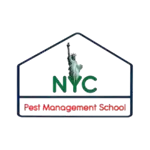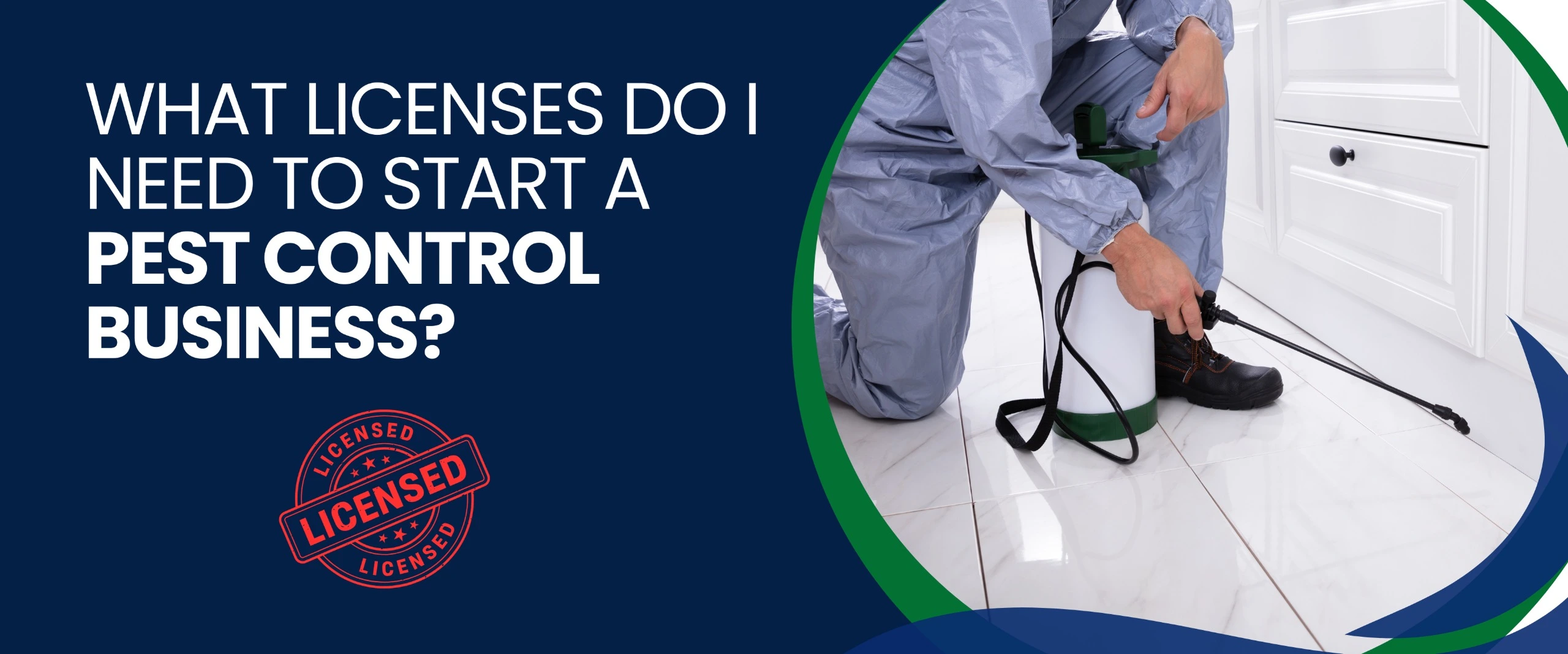A business in this regard is opening a licensed pest control business to help individuals and businesses keep their home and premises free from pests. However, it’s essential to understand that operating a licensed exterminator business goes beyond excitement—it requires the right licenses and certifications to ensure safety and legal compliance. Without the right paperwork, expect fines, litigation, and a bad reputation. The following are about the licenses you need, well, just before opening your doors.
Why Licensing Is Important in Pest Control
The pest control certification process is vital because of the potential risks associated with the chemicals used to eliminate pests. This business of pest control is highly observed, for the chemicals one may use in exterminating them might be too deadly or harmful when they get to injure either an animal or the person himself for humans, the family pet, or even nature. A pest control license in California or in your respective state demonstrates that you are responsible, compliant with regulations, and trustworthy. Proficient licensing would help your client know you can handle it responsibly, and on the other side of the fence, you adhere to the laws and regulations governing it.
It gives the impression of a more professional and trustworthy pest control business, which would attract more customers and give you an edge over other unlicensed businesses.
Steps to Becoming a Professional Licensed Exterminator
The process for becoming a licensed exterminator basically consists of several steps one has to go through. Most states would require you to take a course in the safe use of pesticides. Immediately after taking a course, it would be followed by passing an examination showing that one knows the right way to apply pesticides. One must also be prepared to pay for a license and, of course, have it renewed every so often.
Licensing will help in growing the business, as customers will have trust in your work and follow the set safety rules. It also reduces the risks of accidents and keeps the business out of trouble with the law.
How much do exterminators make?
How much do pest exterminators make? The answer depends on the region in which you are in, the experience you have, and what services you provide. A regular employee exterminator on someone’s payroll has a rather modest annual income, ranging upwards from $30,000 to $60,000. On your own, you would prima facie earn more, considering that the services are niche, something that customers need.
A good example may be the green pest control service wherein due to the growing demand, the customers do not hesitate to pay an amount that is quite handsome.
What Happens If You Do Not Have the Required Licenses?
Operating a pest control business without proper licensing will be accompanied by severe sanctions:
- Heavy fines and penalties
If licenses are not available, large fines can be imposed upon one. Large fines mount quickly and may be substantial enough to remove your operation from business.
- Business Shut Down
Conversely, if you do not have the right licenses, local or state authorities can shut down your business, which apart from the reputational damage, costs you money.
- Lawsuits and Liability
You could be sued if there is an accident or property damage. Without the right licenses, you may have to pay out of pocket for everything, and court cases can be very expensive to fight.
- Loss of Trust
Operating a pest control business without appropriate licenses has people suspecting that you do not know what you are doing. People will not have confidence in you, and it could tarnish your reputation. Without a license, you lose customers and also any future business.
Types of Licenses You’ll Need
The license to operate a licensed pest control business varies depending on location and what specific service is being performed, but here are just a few of the general ones that most pest control businesses will need:
- Business License
You will be required to get a business license that legalizes your business of pest control. A business license shows the government who you are and what you do. Most of the time, application for a business license requires only the name of the business, address, payment, and renewal annually.
- Exterminator License
Exterminators need a license to operate. This is proof that one is competent and capable of handling pests safely. By taking the test and undergoing a course on the right methods of applying pesticides, you will have acquired your license. The licenses may be subjected to some fee and renewed at set periods.
- Pesticide Applicator Certification
You will be required to have a pesticide applicator license if you plan on using pesticides. A pesticide applicator license indicates that you indeed know the procedures for taking good care of hazardous chemicals safely. About this license, You head for some pest management classes, and following the test you attain the license; you take these classes periodically so as not to lose the certification.
- Additional Permits and Certifications
Other licenses and permits that may be required could be very specific depending on where you are located and/or the type of business or services you provide. Examples include environmental licenses, health and safety permits, or zoning permits.
How to Register and Operate a Pest Control Business
Once all your certifications are in order, then you can proceed to register your business. Here’s how:
- Choose a Business Name
Choose a business name that will reflect the service you offer. Check whether it is available, and also be unique.
- Set Up Your Business Structure
You also need to classify what kind of business you set up-be it a sole proprietorship, partnership, LLC, or corporation.
- Open a Business Bank Account
It will be a good thing to have a separate bank account for your business. This would be helpful in keeping your financial records clear, and also your taxes will remain proper.
Insurance for Your Pest Control Business
Insurance is one of the most vital means by which you can guard your business against risk.
- General Liability Insurance
This insurance covers claims of property damages or personal injuries arising out of your work.
- Workers’ Compensation Insurance
If you have employees, you most likely will want workers’ compensation insurance. This would cover the medical costs and lost wages that could happen if an employee is injured at work.
- Commercial Auto Insurance
This would be for insuring the business against a vehicle it utilizes if that happens to be in some type of accident or incident.
Hiring of other Licensed Pest Control Technicians
With the expanding of your business, you would also hire other licensed pest control technicians that would work under you or who will help and assist you in the operationalization of the business. That would keep your business legal and besides that, customers will too have confidence in such services.
How to Grow Your Pest Control Business
When the business is fully up and running smoothly, you must consider giving more value to your customers by:
- Adding value to your service like Residential and Commercial Pest Control
Offer your services to both houses and business premises. Several businesses are requiring pest control in which this could help in bringing an enlarged customer base.
- Eco-Friendly Pest Control
Go green with organic pest control. This could be your niche and a major selling point for those customers who are concerned about the environment.
- Wildlife Control
You can also offer removal services for certain animals, such as raccoons or bats, that are found in people’s homes.
- Stay Current with the Industry
The pest control industry is always adapting, so it’s important to stay current about what is new and happening.
- Join Professional Associations
Being part of a professional association, such as NPMA, enables you to follow with ease what is happening and exploit great networking opportunities.
- Invest in Technology
Software will help in managing your customer appointments and records of services offered for the smooth running of the business.
Conclusion
It is very important when venturing into the pest control business to be well planned, acquire the right licenses that concern the business, and also be in the know about what is taking place within the industry. Keep all the licenses, follow the rules, and train your employees. How much do pest exterminators make? That will depend on your skillset, services, and reputation, but with the right foundation, your earning potential is substantial. Your potential for growth in the pest control business is unlimited, so long as you keep your focus on doing things right!


Excellent news for all us
We’re speeding at one’s rescue—the crew by technicians that will promptly restore a aftermath from some plumbing urgency inside your residence!
Their rapid reaction – a solution for minimizing thy charges in any following major corrections!
Experience one’s pace with value from help right now!
Trademark recent tablets in huge climaxes – greater as greater vivid orgasms!
no viewed previously – highly recent within healing discipline research!
Entirely protected as efficient – too elevated libido well yet increased sexual strength!
Boost volume from own emissions now right now!